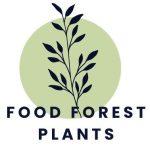Description
With the wild weather and difficult growing conditions – don’t we all need vegetables with some inbuilt resilience? This vegetable is on the wilder side with many of the health benefits wild vegetables provide. Turkey berry is very easy to grow and a very prolific producer.
Thai Pea Eggplant is a shrubby perennial growing to 2m high and wide. Having a branching habit and produces green pea sized berries in clusters. Used in Thai and Indian dishes for it’s flavour and exceptional health benefits. Slightly bitter taste.
Other common names include: turkey berry are wild eggplant, prickly nightshade, devil’s fig and pea eggplant.
How to grow pea eggplant.
Eggplant grows best in fertile well drained soil and full sun. Improve your soil as for any other eggplant.
The immature fruit is green, turning yellow then orange as it ripens.
Health benefits and medicinal uses:
A friend told me about a forgotten part of Rudolph Steiner’s teachings: the wild plants. He reckoned about a hundred years ago that the genetic pool of our domesticated food plants is beyond saving and that we have to re- breed food from wild plants. I hope I got this one right, if not please comment below!
Anyway, this is a rather undomesticated plant is packed with nutrients Rich in vitamin A and carotenoids, ample quantities of vitamin C, rich in iron, calcium and potassium.
Herbal lore tells that turkey eggplant helps with blood sugar, is good for the heart, the kidney function and uplifts the immunity.
The root, seeds, and leaves can be used as herbal remedies.
Is solanum torvum a weed?
To the best of my knowledge Turkey berry is not declared as a noxious weed in any state, but it has naturalized in QLD and parts of NSW. There is some confusion with this plant and it is often mistaken for the much more aggressive Giant devil’s fig Solanum chrysotrichum.
Just to make sure that it does not spread: do net the fruit so that the birds can’t get to it.
Other names:
There is a myriad of other names, this is what I found in the PFAF database:
Akapu, Akrim, Anjang kha, Anzangkha, Bak-kheng, Ban bihi, Ba’o, Bengar betahet, Bhit-tita, Bhurat, Bintorung, Buah ulam, Byako, Ca nhuong, Ca nong, Chepoka, Choondai kai, Chuko wana, Chundaikai, Devil’s-fig, Devil’s Figs, Dieng-soh nonag, Ehiishikhokha, Gota begun, Hathubhekuri, Hati bhekuri, Hati-khunthai goukha, Hkawhkam-kaju, Jabadane, Jungli biya, Kaatuchunta, Kadusunde, Kao, Karinchi, Kashongo, Kattusundai, Kazaw-kha, Kemko, Khamchokraling, Khamkha sikam, Khamka sikum, Kharangjeh, Kha-yan-ka-zot, Kheang khah, Khem-khatai-baphangl, Khoith ha, Kutumba, Kutunbi, Lam khamen, Leenguipi, Magwikaju, Mah-kua-puang, Makueyphuong, Mai-mak-hku-sum, Marang, Mequasa, Moxiha, Muhahao, Myobyet-khayan, Ngbaku, Pako bhijri, Panthao khimkhatai gidiba, Pea eggplant, Plate-bush, Platebrush, Poka, Pokak, Rakhokha, Ranbaingan, Ranbhatai, Rangaini, Sahor pot, Sam tok, Shui gie, Sitabangko, Sondaegida, Soonday kai, Sundai, Sundaikai, Sundakkayi, Susumber, Takokak, Tangaiji, Tawkpui, Terong limbang, Terong pasay, Terong pipit puteh, Terong pipit, Terong rembang, Terongan, Terong setan, Teruk rimbong, Theso bongnai, Thesokumbong, Theso-rongman, Thulo bihi, Tit-began, Tiyung satik, Trab put lumnhong, Turkeyberry, Yamax-iha

Reviews
There are no reviews yet.